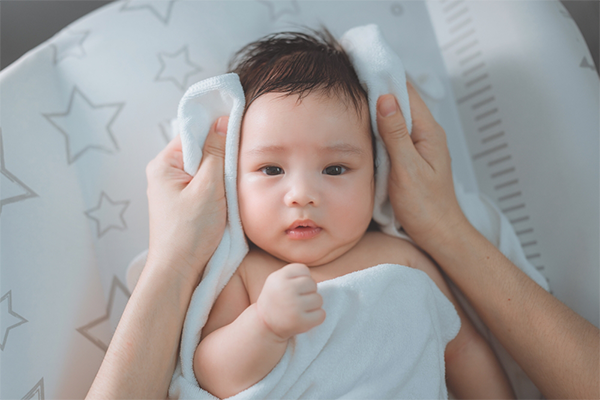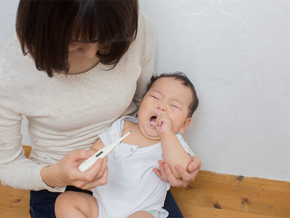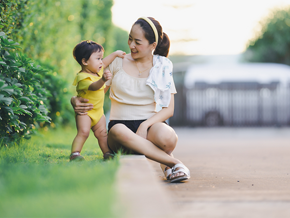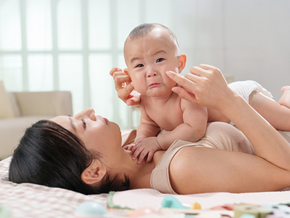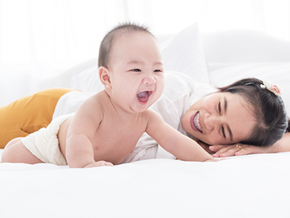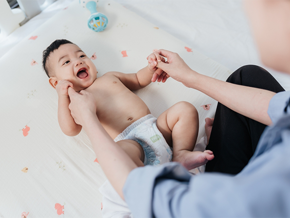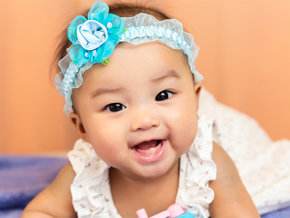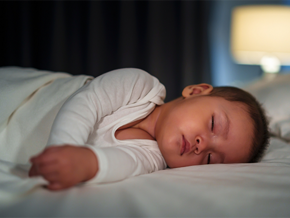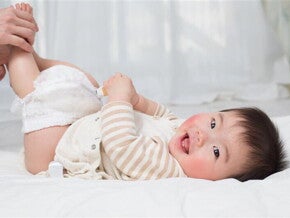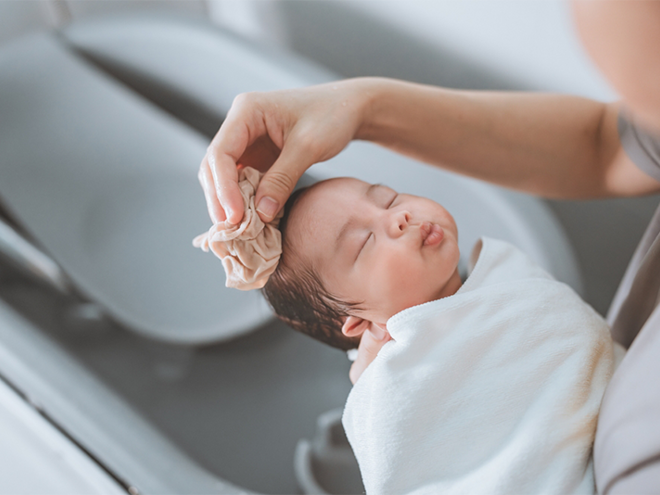
There’s something about a baby bath that’s just magic. The warm water with little toes peeking through, the way your baby looks at you. It’s not just hygiene, it’s a bonding moment, too.
Beyond the warm fuzzies, proper baby bathing is also about safety and skin health. Newborn skin is sensitive and learning the right bathing techniques helps keep their delicate skin protected from rashes and irritation.
Whether it’s your first or fifth, here are the ins and outs of baby bathing to keep your little one safe and squeaky clean
Baby Bathing Essentials
Make sure you have these on hand to keep bathtime calm and stress-free:
- Soft baby washcloths
- Mild, fragrance-free baby cleanser
- Gentle baby shampoo
- Baby bathtub or clean basin
- Water thermometer (or you can just use your wrist!)
- Soft hooded towel
- Clean clothes and diaper
- Moisturizer for newborn skin
Do babies need shampoo? In the early weeks, warm water is typically all you need to clean your baby’s scalp. If your little one has a full head of hair or mild cradle cap, you can use a tiny drop of gentle, fragrance-free baby shampoo once a week.
When to Start Bathing Your Newborn
Newborns don’t need a bath right away. In fact, the World Health Organization (WHO) recommends delaying the first full bath until at least 24 hours to preserve the protective layer of vernix caseoa. It’s the creamy coating that keeps your baby moisturized and protected from skin infections.
Stick to sponge baths until the umbilical cord stump falls off (usually within one to two weeks). It’s a gentle and safe way to keep your child clean without soaking the cord. Use a soft baby washcloth, warm water, and gentle strokes around their neck, hands, face, and diaper area.
Step-by-Step Guide: How to Bathe a Newborn Baby
Do babies need shampoo? For most newborns, gentle rinsing with warm water is enough; save the shampoo for hairier days ahead!
1. Prepare your bath space.
Find a warm room or bathroom free of drafts. Gather everything you need beforehand: baby washcloth, towel, clean diaper, clothes, and a cup for rinsing.
2. Fill the tub or basin.
Use a baby bathtub or clean basin. Fill it with 2 to 3 inches of lukewarm water (around 37°C or 98.6°F). Always test the temperature with your wrist or elbow or use a water thermometer. If it feels comfortably warm, you’re good to go.
3. Undress baby but keep them warm
Gently undress your baby but keep them wrapped in a soft wash towel. Uncover only the part you’re washing to keep them warm and secure throughout the process.
4. Gently lower baby in.
Support your baby’s neck and head with one hand and ease their body into the water feet-first. Keep a firm grip because they may wiggle more than you expect!
5. Wash with care.
Start with the cleanest areas: the face, then move down to the arms, tummy, legs, and finally the diaper area. Use plain warm water or a small amount of fragrance-free baby cleanser.
Massage baby’s scalp gently with your fingertips, not your nails. Rinse thoroughly to avoid any residue that could dry out or irritate the skin. As always, go slow and be mindful.
6. Rinse!
Use your rinsing cup or washcloth to pour warm water over your baby’s body. Be extra careful around the face. Once rinsed, support their head and lift them out of the tub slowly and securely.
7. Dry and dress promptly.
Place baby on a soft towel and gently pat dry (don’t rub). Pay special attention to drying skin folds to prevent irritation. Moisturize if needed, and dress them in fresh, cozy clothes.
Bath Time Safety Tips You Should Know
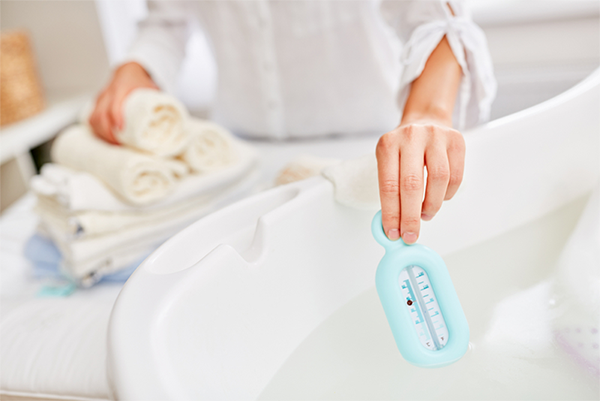
Always check water temperature before a newborn baby bath. Lukewarm is key to keeping your little one safe.
Bath time should be fun, but safety is non-negotiable. Here’s how to keep things safe:
1. Always stay within arm’s reach.
Always keep everything you need within arm’s reach before you even start. Babies can be slippery and wiggly, and once you’re mid-bath, you won’t want to leave them for even a second. If you forget something, wrap your baby in a towel and bring them with you. Never leave your baby unattended at any time.
2. Check the water temperature.
Check the water before dipping them in. Lukewarm is best: around 37°C (98.6°F). A quick wrist or elbow test works if you don’t have a thermometer. Too hot can easily burn, and too cold will make bath time unpleasant.
3. Use a non-slip surface.
If using a baby tub, choose one with a textured bottom or place a clean towel at the base to prevent slipping. This helps keep your baby secure while you wash them.
4. Dry the umbilical cord stump gently.
If the umbilical cord stump is still there, keep it dry and stick to sponge baths until it falls off. Once it’s gone, you can move on to full tub baths.
No two babies are the same. Your little one may love water or need time to adjust, so be patient. These simple steps go a long way in making bath time feel calm, safe, and even a little fun. With gentle hands and confident voice, you can transform baby bath time into a safe, soothing ritual of love.
References
World Health Organization. (2017). Delaying bathing to reduce neonatal hypothermia. https://iris.who.int/bitstream/handle/10665/63986/WHO_RHT_MSM_97.2.pdf
Centers for Disease Control and Prevention. (2022). Caring for your newborn. https://www.cdc.gov/ncbddd/childdevelopment/positiveparenting/infants.html
American Academy of Pediatrics. (2022). Baby bath basics. https://www.healthychildren.org
Philippine Pediatric Society. (2022). Infant hygiene and skincare tips. https://www.pps.org.ph










